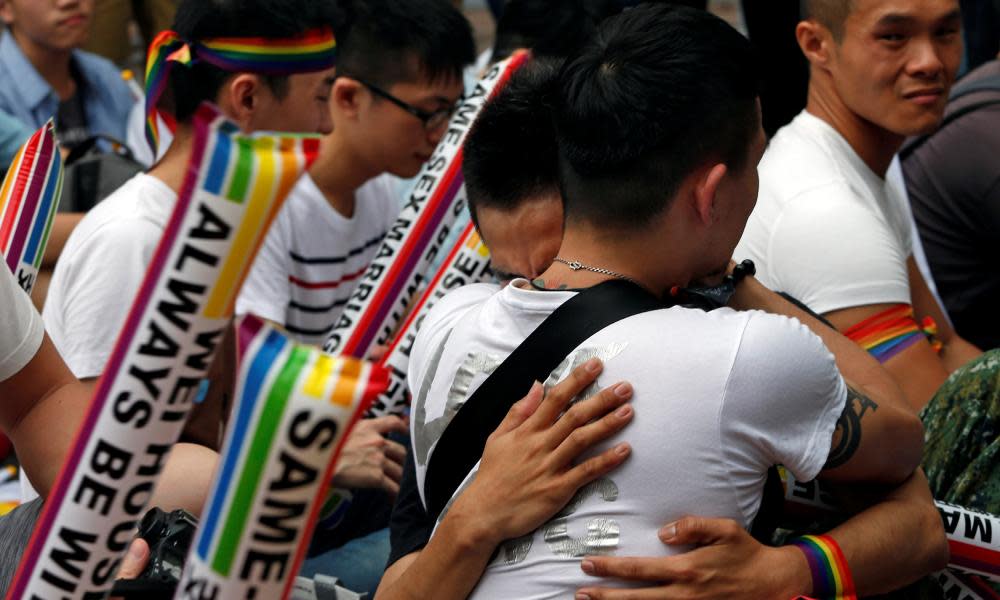The Guardian view on Taiwan and same-sex marriage: a sudden victory years in the making | Editorial

The crowd in Taipei on Wednesday was not huge; a few hundred people. But the joy and relief on their faces radiated around the world. The constitutional court had just ruled in favour of allowing same-sex marriage, in Asia’s first such judgment. The legislature now has two years to amend the civil code, which defines marriage as occurring solely between a man and woman, or pass laws addressing the issue. If it does not, same sex-couples will be able to wed anyway.
The news was all the more welcome given its backdrop. Just last week, in Asia alone, a South Korean army captain was sentenced for having sex with other servicemen following what campaigners describe as a witch hunt by the military, while in Aceh, Indonesia, two men were caned publicly for consensual gay sex. It is a matter of weeks since reports emerged of a horrifying anti-gay crackdown in Chechnya, involving well over a hundred men, some of whom are believed to have been killed.
The decision highlights Taiwan’s claim to be a beacon of progressive values. It hosts a large annual gay-pride parade and textbooks praise equality. It was the first place in Asia to elect a non-dynastic female leader; Tsai Ing-wen supported same-sex marriage during her campaign – though her muted tone since has disappointed supporters – and appointed liberal judges to the court.
The judgment also reminds us how quickly and dramatically social attitudes can change. It was only 16 years ago that the Netherlands became the first country to allow same-sex couples to wed (though other forms of union had been approved). Several more have followed suit and Luxembourg’s prime minister brought his husband to the Nato summit in Brussels – even if the White House appeared reluctant to acknowledge him in the photo of leaders’ spouses.
In 2001, almost three-fifths of the Taiwanese population opposed same-sex marriage. Now around half support it (another quarter or so indicating no preference). Yet bills to legalise it, introduced ahead of the case, have stalled. The campaign has seen a vicious homophobic backlash. The justice minister dismissed same-sex relationships as a “new invention”.
Chi Chia-wei, the veteran activist who filed the case, has spent three decades seeking the right to marry his partner. When society suddenly embraces progress we should celebrate – but we should also remember how much work those like Mr Chi have invested, when it appeared both thankless and hopeless, and how much remains to be done.

 Yahoo News
Yahoo News 
